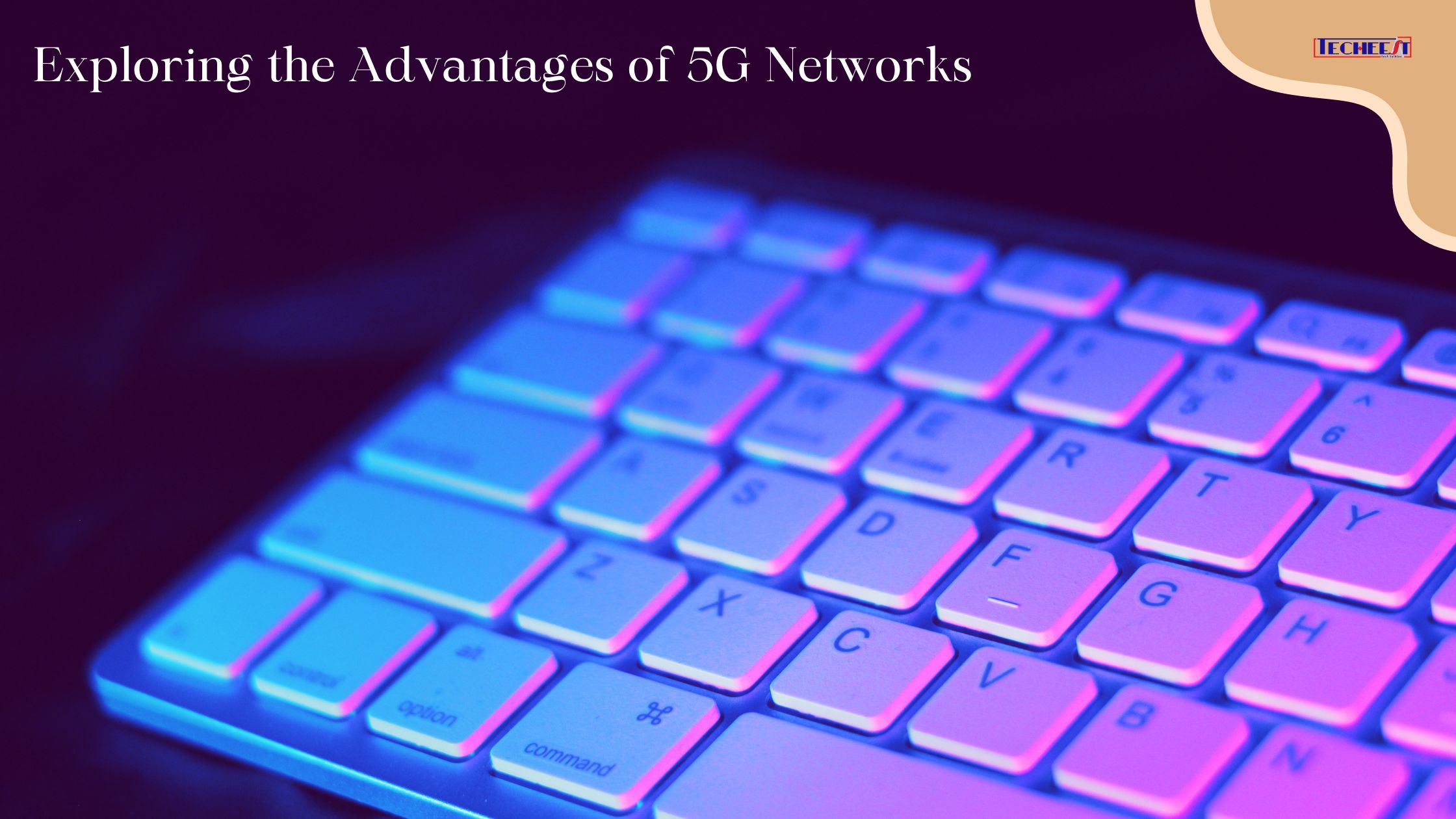The introduction of 5G networks is one of the biggest developments in the fast-paced world of today, where technology is advancing at an unprecedented rate. It has sparked a revolution in the way we communicate, engage, and conduct business. Thanks to its ultrafast speeds, low latency, and transformative powers, 5G promises to revolutionize a plethora of industries and enable an infinite number of applications. In this blog, we’ll explore the advantages of 5G networks and look at how this technology is predicted to affect the future.
A Brief Overview of 5G
Let’s first define 5G before going into the benefits. Wireless technology’s fifth generation, or 5G, is very different from 4G. It operates on higher radio frequencies, has more bandwidth, and faster data transfer speeds. The principal advantages of 5G are as follows:
1. Lightning-Fast Speeds
5G’s blazing fast speed, which opens up a world of possibilities for both consumers and businesses, is one of its most praised features. We’re talking about having the capacity to play real-time online games with minimal latency, stream 4K video seamlessly, and download an entire HD movie in a matter of seconds.
2. Low Latency
Latency is the amount of time that passes between issuing a command and the device executing it. 5G virtually eliminates latency, making it almost instantaneous. This is crucial for situations where split-second decisions are needed, like augmented reality (AR) experiences, driverless cars, and remote surgery.
3. Enhanced Connectivity
5G enables the Internet of Things (IoT) in addition to speeding up smartphones. 5G enables connected industries, smart homes, and smart cities by enabling the simultaneous linking of a large number of devices. Everything, even traffic lights and refrigerators, communicates flawlessly.
4. Capacity for Massive Data
Although we continue to use more data, 5G networks are prepared to handle the demand. This is especially important for cloud computing, streaming services, and data-intensive apps. It guarantees a more seamless user experience even in congested locations.
5. Improved Energy Efficiency
Not only does 5G perform exceptionally well, but it uses less energy than its predecessors. This helps achieve sustainability goals and reduces operating costs.
The Advantages of 5G Networks
Now that we are familiar with the technology, let’s look at the special advantages of 5G networks and how they could completely change a variety of industries:
1. Healthcare
The healthcare sector will greatly benefit from 5G. Telemedicine and remote surgery will become more widely available with low latency and high reliability. Surgeons can operate from anywhere in the world, and patients in remote areas can receive excellent medical care.
2. Autonomous Vehicles
Autonomous cars rely on real-time information and quick decision-making. 5G networks can provide the high bandwidth and low latency required for reliable and safe autonomous navigation. This could lead to improvements in traffic safety and the auto industry.
3. Manufacturing (Industry 4.0)
5G enables smart factories in the manufacturing sector, where equipment and machines communicate with each other without any problems. Predictive maintenance, less downtime, and higher production efficiency are the outcomes of this. It forms the basis of Industry 4.0.
4. Entertainment
Among the entertainment options enabled by 5G are virtual and augmented reality experiences, as well as gaming. Gamers can expect lag-free multiplayer experiences even though AR and VR can be used for immersive storytelling and educational purposes.
5. Smart Cities
5G is crucial for smarter, more efficient city development. It enables enhanced environmental monitoring, intelligent traffic management, and public services. Smart city initiatives can improve the quality of life for residents while reducing traffic and preserving energy.
6. Education
5G broadens the scope of education. It enables the creation of outstanding, captivating virtual learning experiences. Students can collaborate in real time on projects, take part in virtual field trips, and access global educational resources.
7. Retail
The retail industry benefits from the better customer experiences that 5G offers. As cashierless stores, augmented reality shopping, and personalized marketing based on real-time data become more practical, shopping environments become more engaging.
8. Agriculture
Precision agriculture depends on data-intensive applications, such as autonomous vehicles, drones, and sensors. 5G promises farmers faster data access and analysis, which will lead to increased yields and more efficient farming practices.
Conclusion
A new era of innovation and connectivity is about to begin with the benefits of 5G networks. This technology can transform entire industries and improve living standards everywhere, from healthcare to transportation, education to entertainment. Expect future improvements in speed, reliability, and connectivity as 5G networks expand and more devices become compatible with them. The power of 5G is transforming the already-arrived future.

